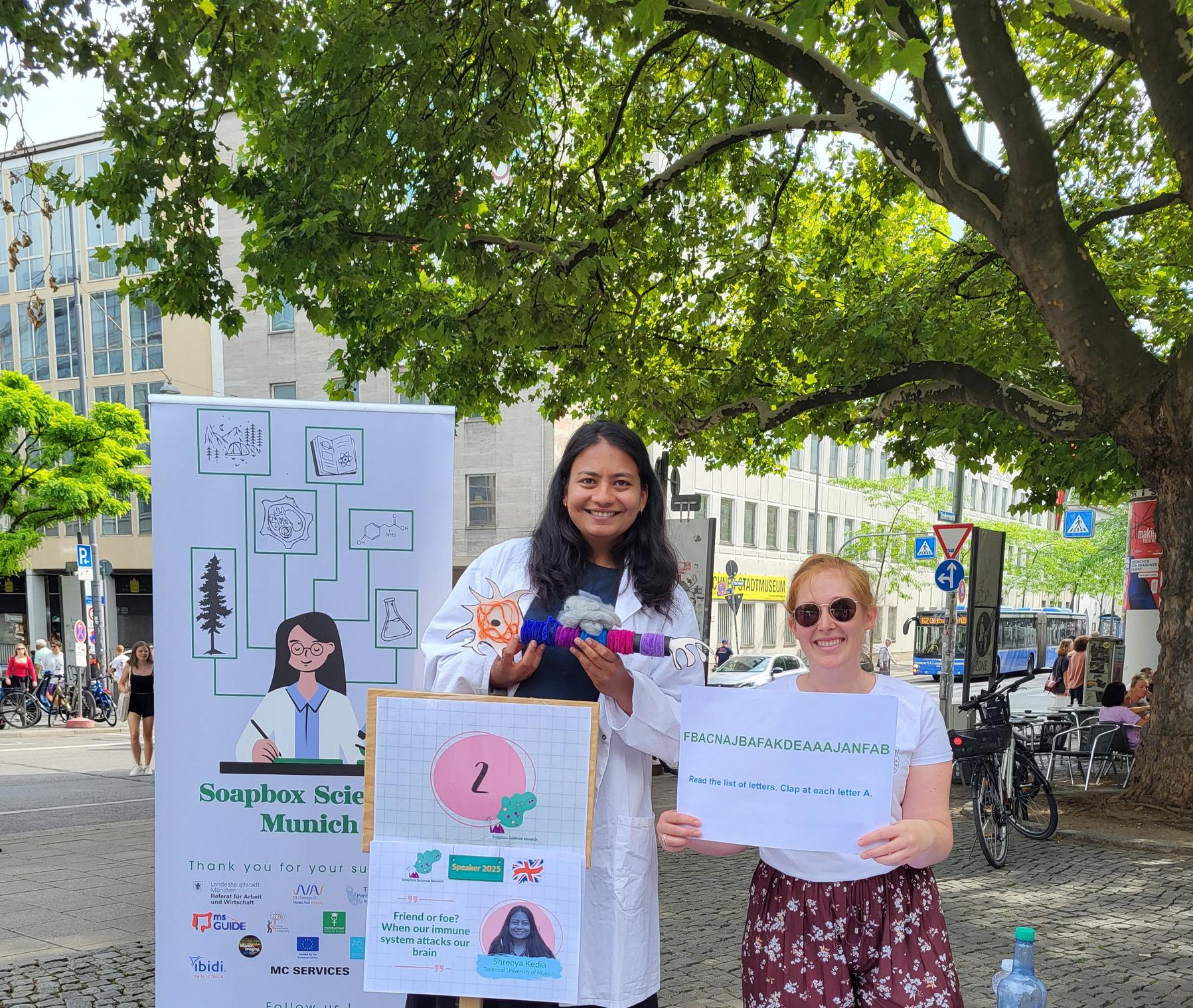During a one-hour session at the event, Shreeya Kedia, who is a PhD student at the Mikael Simons Lab, talked to the public about her research. “What truly surprised me was how knowledgeable and engaged the public was – many attendees already had a strong understanding of Alzheimer’s and were eager to discuss it further. The level of curiosity was inspiring, with thoughtful questions and lively discussions throughout the session,” says Shreeya. “By presenting scientific concepts in a clear, engaging, and accessible manner, these events empower individuals of all ages and backgrounds to connect with science. In today's world, where misinformation is widespread and scientific understanding is more critical than ever, initiatives that make research approachable and relatable are essential. Promoting public understanding of science not only builds trust but also fosters informed dialogue and encourages active participation in addressing the scientific challenges of our time.”
Before standing on a soapbox to engage with the public, she received dedicated training by Soapbox Science Munich that focused on enhancing presentation skills for science communication. “It was a valuable opportunity for us to refine our talks, receive feedback, and discuss the props we planned to use. We had the chance to present in front of a diverse, non-specialist audience, which was incredibly helpful in refining our messaging and making our talks clearer, more engaging, and easier to understand,” reflects Shreeya.
When she is asked about her main takeaway, she answers: “It reminded me that people are genuinely curious about science and eager to understand complex topics – when they’re presented in a relatable, accessible way. As researchers, we often get caught up in technical details, but stepping outside the academic bubble helps us communicate the broader relevance of our work. I’d encourage other researchers to embrace these opportunities – not only to build public trust in science but also to grow as more effective communicators.”
About Soapbox Science
Soapbox Science is a novel public outreach platform for promoting women and non-binary scientists and the science they do. Their events transform public areas into an arena for public learning and scientific debate; they follow the format of London Hyde Park’s Speaker’s Corner, which is historically an arena for public debate. With Soapbox Science, they want to make sure that everyone has the opportunity to enjoy, learn from, heckle, question, probe, interact with, and be inspired by some of our leading scientists. You can find more information about Soapbox Science on their website.

